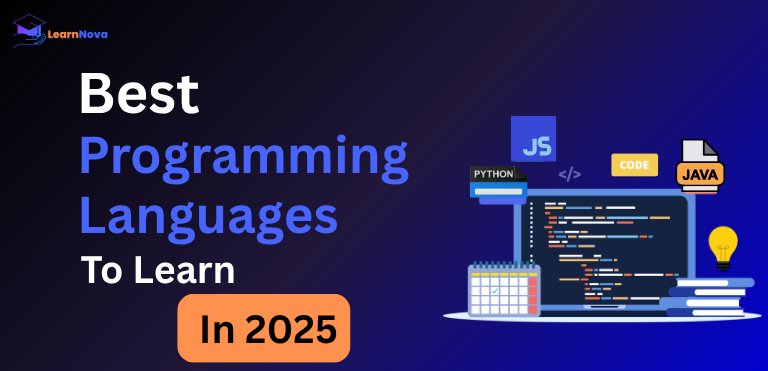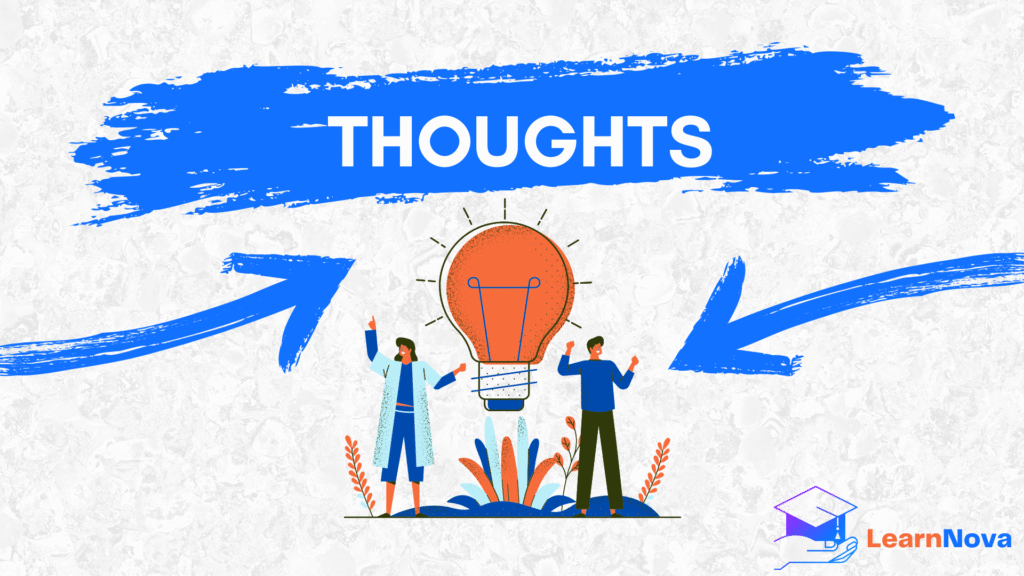Best Programming Languages to Learn in 2025

Table of Contents
Introduction
Choosing the right programming language to learn can shape your career, open up new opportunities, and give you a competitive edge in the tech industry. With technologies like artificial intelligence, blockchain, and cloud computing accelerating faster than ever, 2025 is a pivotal year for developers to adapt, grow, and specialize.
Whether you’re a beginner, a seasoned coder, or someone pivoting into tech, this guide explores the top programming languages you should learn in 2025, complete with real-world use cases and career insights.
Why Language Choice Matters in 2025
The programming landscape is rapidly shifting. Developers are no longer just writing code—they’re building intelligent systems, automating industries, and solving global challenges. The language you choose can determine:
- Job opportunities
- Project versatility
- Ease of learning and productivity
- Community support and library ecosystems
Let’s break down the most valuable programming languages in 2025
1. Python
Why Learn Python in 2025?
Python continues to dominate due to its readability, simplicity, and huge range of applications. Whether you’re building AI models or automating workflows, Python’s vast library ecosystem makes it the go-to language.
Use Cases:
- Machine Learning & AI (TensorFlow, PyTorch)
- Data Science & Analytics (Pandas, NumPy)
- Web Development (Django, Flask)
- Automation and Scripting
Career Value:
Python remains one of the most sought-after languages in job postings globally. It’s a staple for roles in data science, backend development, automation, and AI.
2. JavaScript
Why JavaScript?
JavaScript powers over 95% of the web. It’s essential for anyone interested in frontend or full-stack development. Thanks to frameworks like React, Angular, and Vue, JavaScript makes building modern, interactive websites easy and scalable.
Use Cases:
- Frontend Web Development
- Backend (Node.js)
- Cross-platform Apps (React Native)
- Real-time Web Apps
Career Value:
JavaScript developers are in high demand across startups, agencies, and enterprises. If you want to build digital products quickly and efficiently, this is the language to learn.
3. Go (Golang)
Why Go?
Go, developed by Google, is designed for simplicity and performance. It’s perfect for cloud-native development, which is central to building modern applications using containers, Kubernetes, and microservices.
Use Cases:
- Cloud-native Applications
- Backend APIs
- DevOps Tools
- Networking Systems
Career Value:
Go is used by companies like Google, Uber, Dropbox, and Docker. If you’re targeting roles in DevOps, cloud infrastructure, or scalable backend systems, Go is a strategic choice.
4. Rust
Why Rust?
Rust is gaining recognition for its memory safety, speed, and reliability. It’s ideal for developers building secure and high-performance systems and is increasingly used in blockchain and systems programming.
Use Cases:
- Systems Programming
- WebAssembly
- Blockchain Development
- Embedded Systems
Career Value:
Rust is being adopted by companies like Microsoft, Meta, and Amazon. Its rising popularity in both Web3 and systems engineering makes it a smart language to learn in 2025.
5. Java
Why Java?
Java remains a workhorse in enterprise software and Android development. With a massive legacy codebase and ongoing support from large corporations, Java continues to be a safe and lucrative language to learn.
Use Cases:
- Enterprise Software
- Android App Development
- Financial Systems
- Backend Services
Career Value:
Java developers are widely needed in sectors like finance, government, and big tech. For long-term career stability, Java is still a top contender.
6. Solidity
Why Solidity?
Solidity is the primary language for Ethereum smart contracts and Web3 applications. As blockchain adoption grows in finance, supply chain, and gaming, Solidity is becoming a high-demand skill.
Use Cases:
- Smart Contracts
- Decentralized Apps (dApps)
- NFTs and DeFi Projects
Career Value:
Solidity devs are scarce but crucial in blockchain startups and DAOs. If you’re interested in building decentralized systems, learning Solidity in 2025 is a wise move.
7. Kotlin
Why Kotlin?
Kotlin is Google’s preferred language for Android app development. It’s concise, interoperable with Java, and increasingly used in server-side development and cross-platform mobile apps.
Use Cases:
- Android Development
- Backend with Ktor
- Cross-platform Apps (Kotlin Multiplatform)
Career Value:
As Android continues to lead the mobile market globally, Kotlin developers will remain in demand in both large companies and indie app studios.
8. TypeScript
Why TypeScript?
TypeScript is a typed superset of JavaScript, offering better tooling and fewer bugs. It’s increasingly being adopted by large teams and scalable web apps for improved maintainability.
Use Cases:
- Scalable Frontend Applications
- Enterprise Web Development
- Backend APIs (with Deno or Node.js)
Career Value:
With companies moving toward large-scale JavaScript apps, TypeScript is becoming essential for professional frontend developers and teams building long-term codebases.
How to Learn a New Language in 2025?
Here’s how to make your learning journey efficient and enjoyable:
- Set a goal – Build a project or solve a problem that excites you.
- Use interactive platforms – Try sites like Codecademy, freeCodeCamp, or LeetCode.
- Join communities – Engage in forums, Discord servers, and GitHub.
- Build real-world projects – Don’t just consume content—create apps, bots, tools, etc.
- Stay updated – Follow developers and tech leaders on platforms like X (Twitter), YouTube, or newsletters.
Conclusion: Learn Smart, Not Just Hard
The best programming languages to learn in 2025 are those that align with your goals and the direction of the tech industry. Whether it’s AI with Python, cloud systems with Go, or Web3 with Solidity, the key is taking action and staying adaptable.
Programming isn’t just about syntax—it’s about solving real problems and creating things that matter. Pick a language, start building, and you’ll be amazed at where it takes you.

